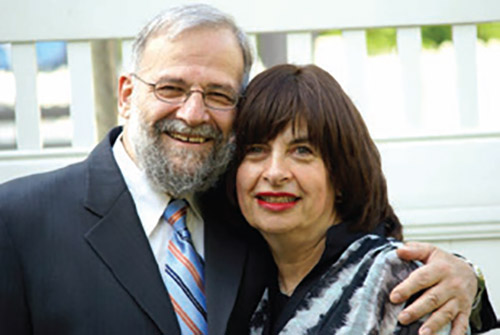
It is difficult to describe the different emotions and feelings that parents of children with special needs experience day in and day out. Due to the “busyness” of most lives we are like robots, functioning without thinking seriously about how different our lives would be “if only XXX would have been ‘normal.’” There are moments, however, when we do think that, and although some people might deny that they do, how could one not have such thoughts?
We remember the time frame for different milestones that passed in Naama’s life with us wondering whether she would walk or be toilet trained, what her intellectual ability would be, etc. It is relatively easy to hope and plan, until at a certain point in your very special child’s life you realize that there really is no hope for the things you had wished for that child. Get used to the fact that the unrealistic expectations you had will just never happen. A child who is 5 and not yet walking will most likely not walk. A child who is 12 and still drooling will probably continue to drool. There are no more excuses to be made. We are still bowled over by the number of people we meet who are paralyzed by making these realizations.
We will not deny that we had dark days during the years that Naama was growing. We tried to take turns feeling sad so that we could comfort each other. Nina had a rule that we were not allowed to cry together. We had to do it separately in order for us to be comforting to our partner. Yet we were determined to work together and make our sad, sad situation work. No one can convince us that there is something beautiful about having a child who requires so much care day and night. However, we are sure that by having Naama in our lives, she, in her own way, together with the rest of our family, was given the opportunity to expose many people from different walks of life to the fact that those who are born with these severe challenges deserve the same honor, respect and love that everyone around us does.
Throughout this process, through the years of impacting our children’s lives and our family as a whole, we made a decision that at some point Naama would deserve and need to live in an environment independent from our family. We never thought that she would not be able to exist without us. We were always realistic enough to realize that we could not go on caring for her forever. Nor was she to be the responsibility of her siblings. When she was 15 we began working diligently and formulating a plan as to what could be done.
We are writing this today because we have recently met several individuals who have children with special needs (some in their 20s and more) who feel that their children cannot survive without them. As one parent said to me, “We would never do that to our child” when Nina suggested that maybe it was time to think about a group home for the person. All of you: Do not kid yourselves! None of us is here forever. What will happen to the “children” when their parents are no longer alive? Is it the responsibility of siblings to care for their brother or sister who needs constant care? Everyone in the family is being punished by such selfish decisions. Resentment is felt even if it does not come to the surface. Marriages are affected, parents become worn out physically, and mentally the strain becomes totally overbearing. As Nina said in her talk to the attendees of the Shalva Marathon in Jerusalem, “Little down kids do not remain cute.” Our daughter and those in her group home are no longer cute. They are adults with severe issues living in residences away from their families, just as their siblings are living away from their families. We have seen it time and time again. Parents insist on caring for a “special” child until one of them suddenly passes and that child who “could not live without his family” is now thriving in a group home or living the same boring life that he had at home.
Couples deserve the right to spend time together and care for each other. There is no way a romantic light can be maintained when a child with special needs requires so much of our time. We implore anyone who has been hedging about this issue to finally see the light and do what is necessary.
We know that there is only one frum group home in this area. We are not talking about the waitlists and lack of facilities. We are talking about making the critical decision that will change your lives, your family’s lives and the life of the person you love who has special needs.
The Glicks are available to discuss this topic further at any time.
By Rabbi Mordechai and Nina Glick
Rabbi Mordechai and Nina Glick are living in Bergenfield after many years of service to the Montreal Jewish community. Rabbi Glick was the rav of Congregation Ahavat Yisroel as well as a practicing clinical psychologist in private practice. He also taught at Champlain Regional College. The Glicks were frequent speakers at the OU marriage retreats. Nina coordinated all Yachad activities in Montreal and was a co/founder of Maison Shalom, a group home for young adults with special needs. They can be reached at [email protected].













